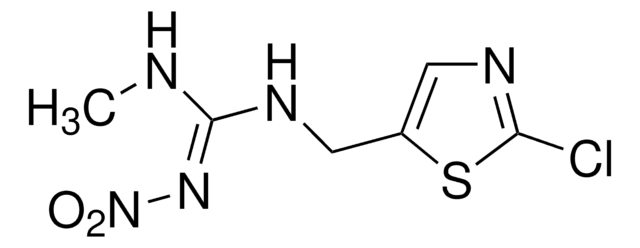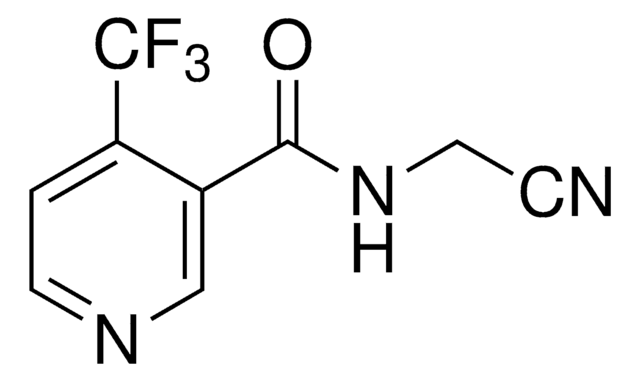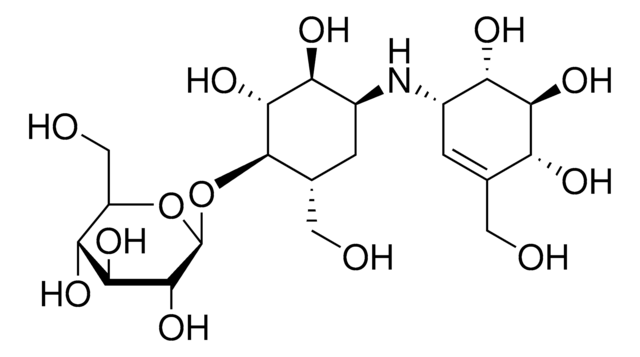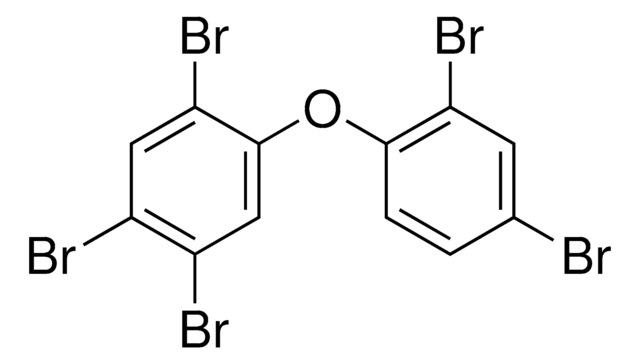37050
Flupyradifurone
PESTANAL®, analytical standard
Synonym(s):
4-[(6-Chloro-3-pyridylmethyl)(2,2-difluoroethyl)amino]furan-2(5H)-one
About This Item
Recommended Products
grade
analytical standard
Quality Level
product line
PESTANAL®
shelf life
limited shelf life, expiry date on the label
technique(s)
HPLC: suitable
gas chromatography (GC): suitable
format
neat
SMILES string
FC(F)CN(Cc1ccc(Cl)nc1)C2=CC(=O)OC2
InChI
1S/C12H11ClF2N2O2/c13-10-2-1-8(4-16-10)5-17(6-11(14)15)9-3-12(18)19-7-9/h1-4,11H,5-7H2
InChI key
QOIYTRGFOFZNKF-UHFFFAOYSA-N
Looking for similar products? Visit Product Comparison Guide
General description
Application
Recommended products
Legal Information
Not finding the right product?
Try our Product Selector Tool.
Signal Word
Warning
Hazard Statements
Precautionary Statements
Hazard Classifications
Acute Tox. 4 Oral - Aquatic Acute 1 - Aquatic Chronic 1 - STOT RE 2
Target Organs
muscle
Storage Class Code
11 - Combustible Solids
WGK
WGK 2
Flash Point(F)
Not applicable
Flash Point(C)
Not applicable
Choose from one of the most recent versions:
Certificates of Analysis (COA)
Don't see the Right Version?
If you require a particular version, you can look up a specific certificate by the Lot or Batch number.
Already Own This Product?
Find documentation for the products that you have recently purchased in the Document Library.
Customers Also Viewed
Our team of scientists has experience in all areas of research including Life Science, Material Science, Chemical Synthesis, Chromatography, Analytical and many others.
Contact Technical Service



















